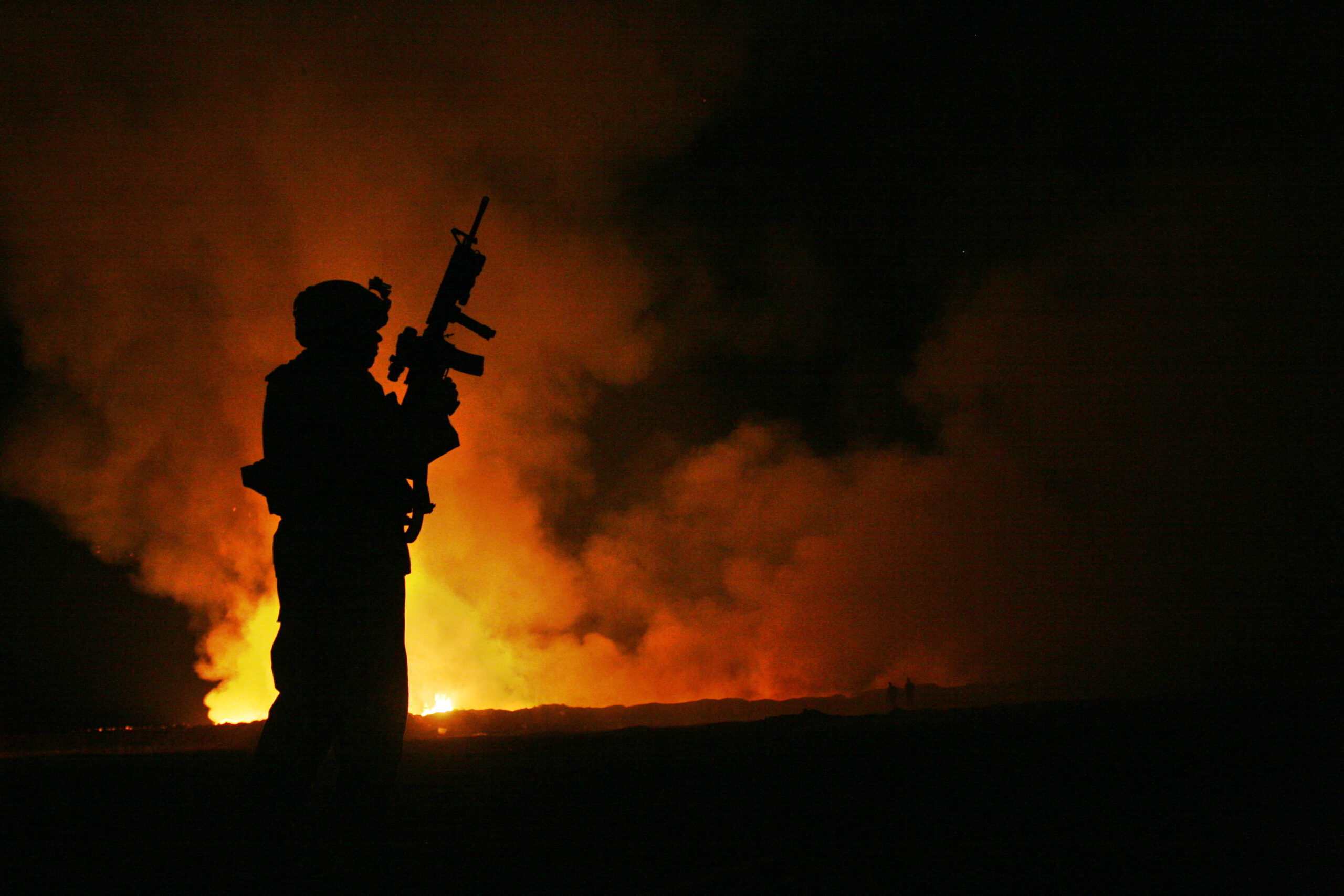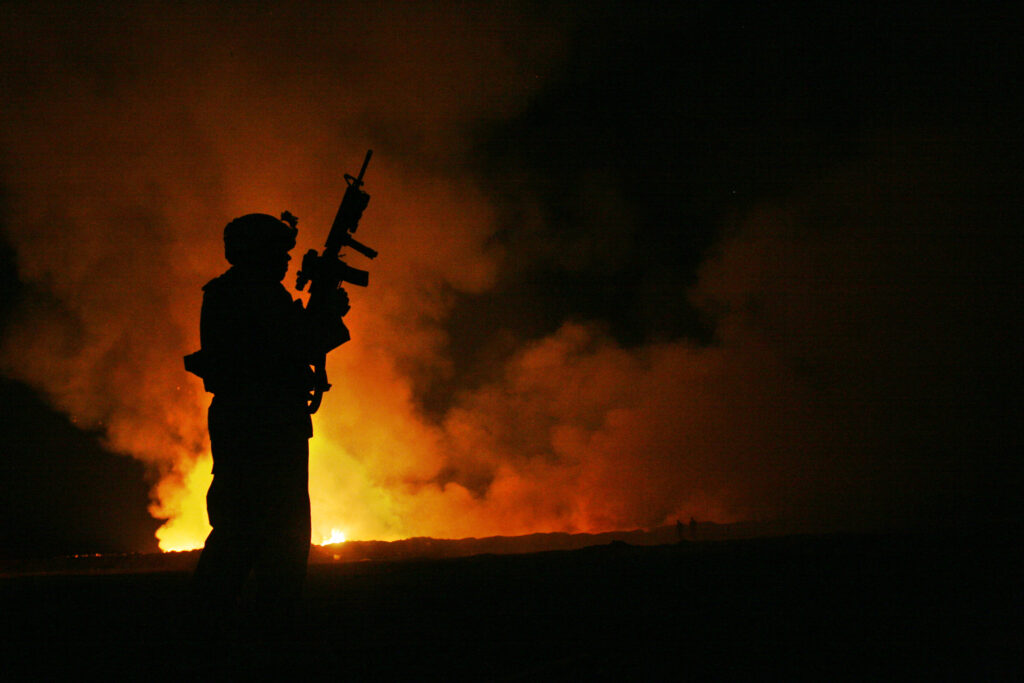

This year, veterans in West Virginia and across the nation gained expanded benefits through the Sergeant First Class Heath Robinson Honoring our Promise to Address Comprehensive Toxins Act (S3373/H.R.3967), more widely known as the PACT Act of 2022. The PACT Act became law in August, and it is not hyperbole to say its passage is the most important law to support veterans in more than thirty years.
What it means to veterans
The law expands the time after discharge that Post-September 11 Veterans have to seek VA health care resources after their separation from active duty from five years to ten. Veterans can enroll in VA Health Care without having a service-connected disability. This is important for Veterans who have trouble after discharge but didn’t file a claim to service connecting their injuries or conditions incurred during their service. They can receive care while working with a Veteran Service Officer (VSO) on their claims. This is especially important because many new presumptive conditions this law introduces may not manifest until long after exposure.
The speed of benefits delivery for Veterans is also improved under the PACT Act, adding twenty-three new presumptive conditions for service in certain dates and locations. Previously, the burden of proof was on the veteran – who had to prove that these conditions were caused by their service. When a condition is presumptive, it is considered more likely than not to be caused or made worse by a Veteran’s service in the defined area.
Additionally, the federal VA has hired more than two thousand additional claims processors to help process what they expect to be a significant number of additional claims, according to Charles Tapp, Chief Financial Officer for the VA – Veteran Benefits Administration.
What it means to veterans
The law expands the time after discharge that Post-September 11 Veterans have to seek VA health care resources after their separation from active duty from five years to ten. Veterans can enroll in VA Health Care without having a service-connected disability. This is important for Veterans who have trouble after discharge but didn’t file a claim to service connecting their injuries or conditions incurred during their service. They can receive care while working with a Veteran Service Officer (VSO) on their claims. This is especially important because many new presumptive conditions this law introduces may not manifest until long after exposure.
The speed of benefits delivery for Veterans is also improved under the PACT Act, adding twenty-three new presumptive conditions for service in certain dates and locations. Previously, the burden of proof was on the veteran – who had to prove that these conditions were caused by their service. When a condition is presumptive, it is considered more likely than not to be caused or made worse by a Veteran’s service in the defined area.
Additionally, the federal VA has hired more than two thousand additional claims processors to help process what they expect to be a significant number of additional claims, according to Charles Tapp, Chief Financial Officer for the VA – Veteran Benefits Administration.
Qualifying conditions and locations
Although most of these presumptive conditions involve toxic exposures in post-9/11 conflicts, the Act includes two additional presumptive conditions resulting from exposure to herbicides such as Agent Orange. These are Monoclonal Gammopathy of undetermined significance (MGUS) and High Blood Pressure (Hypertension).
The Act also adds locations to the list of presumptive locations for herbicide exposure, including the following:
- Any U.S. or Royal Thai military base in Thailand from January 9, 1962 through June 30, 1976;
- Laos from December 1, 1965 through September 30, 1969;
- Cambodia at Miomot or Krek, Kampong Cham Province from April 16, 1969 through April 30, 1969;
- Guam or American Samoa or Guam or American Samoa territorial waters from January 9, 1962 through July 30, 1980; and
- Johnston Atoll or a ship that called at that location from January 1, 1972 through September 30 1977.
If you have a condition that is presumptive for tactical herbicide exposure that is not service-connected and you served in any of the locations and dates that tactical herbicides were known to have been used, or if you’ve been exposed and have either of these conditions, a VSO can help – even if you’ve filed a claim for them before and been denied.
The new presumptive conditions apply to the following Veterans:
- Veterans who served in any of the following locations on or after August 2, 1990 – Bahrain, Oman, Somalia, Qatar, The United Arab Emirates (UAE), Kuwait, and Saudi Arabia.
- Veterans who served in any of the following locations on or after September 11, 2001– Afghanistan, Jordan, Uzbekistan, Djibouti, Lebanon, Yemen, Egypt, and Syria.
Conditions related to these locations include the following:
- Brain Cancer
- Chronic Rhinitis
- Glioblastoma
- Chronic Sinusitis
- Respiratory Cancer
- Constrictive Bronchiotis
- Head Cancer
- Emphysema
- Lymphoma
- Granulomatous Disease
- Lymphatic Cancer
- Interstitial Lung Disease
- Neck Cancer
- Pleuritis
- Pancreatic Cancer
- Pulmonary Fibrosis
- Reproductive Cancers
- Chronic Bronchitis
- Melanoma
- COPD
- Asthma
Please contact us if you have any of these conditions and served in any of the locations listed above for the timeframes listed. You can contact a VSO directly, email Daryle.W.Bayless@WV.gov, or call 304-558-3661 for an appointment.

